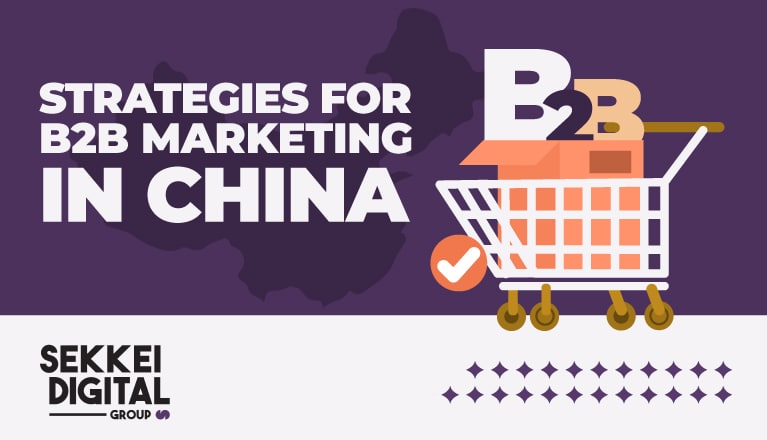Last Updated on March 12, 2024
It’s no secret that China’s business scene holds impressive economic power, but did you know that the Chinese B2B market segment plays a huge part in it?
In fact, the B2B e-commerce market share in China is expected to grow from 15.5 trillion yuan (2022) to 19.5 trillion yuan (2025). This positive business outlook further empowers B2B companies to capitalize on the continued eagerness of Chinese consumers to shop online.
And with the consistent evolution of the local digital landscape, Western companies have enough reason to dive into the Chinese market.
Here are expert insights and the best strategies foreign marketers can utilize when conducting B2B marketing in China.
How Does B2B Marketing Work in the Chinese Market?
True to its name, the Business-to-Business (B2B) marketing strategies in China aim to help international businesses sell foreign products or services to other companies operating within the local market.
As you know, the Chinese market is becoming more digitalized nowadays. Because of this, foreign B2B companies must make every marketing strategy appeal to the online shopping needs of Chinese internet users.
Chinese search engines, social media platforms, and e-commerce channels are now the core of B2B marketing in the country.
With over 76% of China’s population transacting online, reaching your potential clients has never been easier. All you need is to execute the right digital marketing strategy.
Although offline presence demonstrates the brand’s long-term commitment to the China market, building an online reputation on different platforms will give marketers a chance to communicate directly with their targeted customers.
Here’s how you can differentiate the two B2B marketing types:
● Inbound B2B Marketing
This customer-centric approach includes appealing to Chinese consumers and partners through valuable content, personalized shopping experiences, and solid online visibility.
To achieve a successful inbound B2B marketing campaign, brands can utilize the growing popularity of Chinese social platforms for effective lead generation. On top of that, website localization and paid ads are effective strategies to connect with the brand’s target audience.
When properly executed, inbound B2B marketing in China can also generate leads through Search Engine Optimization (SEO) and Search Engine Marketing (SEM).
● Outbound B2B Marketing
On the other hand, outbound B2B marketing involves old industry practices, such as pushing promotional messages to a broad audience to generate interest and increase sales.
Typically, this approach does not include answering questions directly from potential clients and consumers. However, local marketers find it effective in China, mainly because of the country’s complex market segmentation and digital platforms.
Digital marketing efforts can be applied to outbound B2B by selling products in local and cross-border e-commerce marketplaces.
You may not know, but today’s Chinese e-commerce platforms have a massive user base and social media functions that allow brands to interact with potential clients or partners.
7 Strategies for a Successful B2B Marketing Campaign in China
1. Developing a Website in Chinese Language
One of the first things you should know about the Chinese market is that their digital landscape has strict censorship regulations.
So, unless your website is in a simplified Chinese language, you can’t expect it to appear in a popular search engine, even when potential buyers or partners seek your brand directly.
Besides that, the country’s internet censorship also prioritizes high-quality websites. It means a Chinese website with local domain hosting, like .cn or .com.cn, will rank high in search engine results.
Besides breaking language barriers between you and your target audience, it’s also essential to take note of censored Chinese keywords in China’s internet landscape.
Even with a localized version of your business website, it’s essential to create Chinese content while avoiding these restricted terms. Company websites not abiding by these regulations may have less search authority or be blocked in the local internet portal.
On top of that, brands are advised to create mobile-friendly websites. Why? Because over a billion Chinese internet users access the web through their mobile devices. Statista says this count is one-fifth of the world’s overall mobile users.
Should you be interested in localizing your brand’s content, from creating articles to other technical aspects of your website, you can check out our work with Focal.
Sekkei Digital Group’s translation and web-related services helped the brand generate more visibility to Chinese customers without completely changing the company branding.
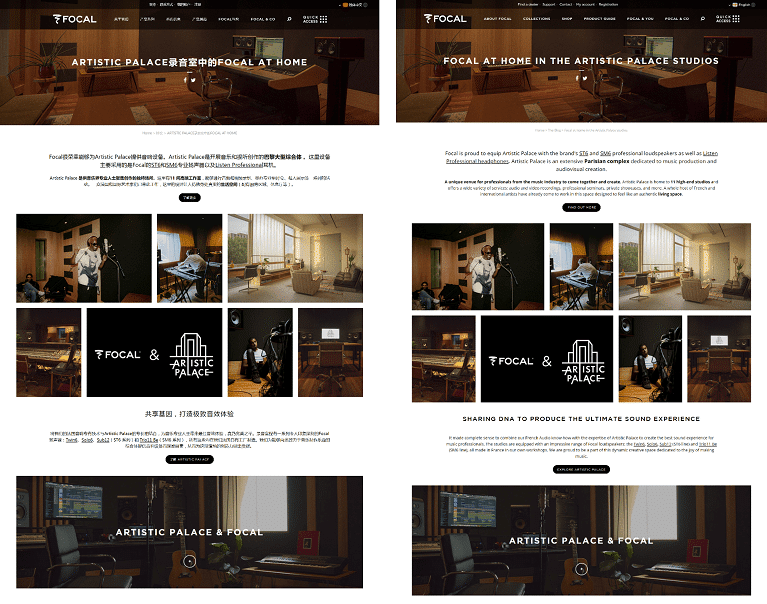
Example of translation and webmastering services for Focal’s Chinese website
2. Launching an Effective Baidu SEO & PPC Strategy
Baidu is China’s leading search engine. As of June 2023, it’s the industry’s biggest platform, with over 677 million active users. Its massive user base and $17 billion yearly revenue showcase a big difference between platform rivals (like Sogou and 360 Search).
Launching Chinese SEO strategies in Baidu isn’t as easy as you think. So, if you’re going to execute this method for your digital marketing approaches.
Here are some tips we can recommend:
- Strive to write company online content using simplified Chinese.
- The length of website title tags and meta descriptions should be appropriately optimized.
- Don’t write website slugs in Chinese or English. You must use Pinyin.
- Improve the website loading speed to prevent potential buyers from experiencing a bad user experience.
- Integrate industry-related keywords into your brand’s website content.
- Make the website’s hierarchy structure organized so your content can be indexed and crawled correctly.
Besides Baidu SEO, launching paid ads is also an excellent lead-generation technique. Typically, these advertisements are focused on generating more sales for the brand.
If you want to expand your audience reach further, we also recommend launching a Chinese B2B campaign on Sogou and 360 Search to generate leads.
However, don’t forget that these platforms aren’t that massive. Because of this, it’s only natural to add more focus on Baidu SEO and PPC strategies.
If you’re considering entering the local B2B market using this strategy, we’re sure you’ll find our work with Merck – MSD interesting. Our team executed off-site and on-site SEO strategies for the brand, from keyword analysis to a complete website audit.
SDG has been working with the company since 2020, and our continued collaboration allowed their website to increase by 161% in page views and 345% in overall user count.
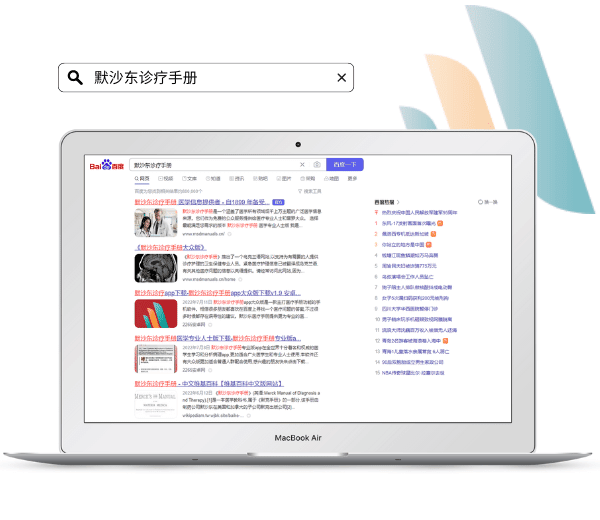
Example of Baidu SEO for MSD Manuals (Merck)
3. Executing Proper Online Branding on WeChat
When it comes to Chinese B2B marketing, we cannot stress enough the importance of having an online presence in WeChat. It’s hard to deny the influence of this super app, especially with 1 billion users.
Even without a massive marketing budget, foreign companies can use the app to connect with existing local customers and possible clients. All you need is to create an official WeChat account for your business.
If you’re unsure how to do this, you can research expert digital marketing agencies to help create a WeChat official account for your business in China.
Using WeChat, businesses can launch ads, post articles and create a mini-program to gain market traction or organically attract clients.
We understand that the Chinese market can be a bit complex for new foreign businesses to understand. If you need proof of how powerful Chinese social media is, we suggest checking out our collaboration with Duckhorn.

Example of Duckhorn’s WeChat store
4. Utilizing Chinese Social Media Platforms
One of the surefire ways to tackle B2B marketing in China is establishing a presence on top Chinese social media platforms. These apps boast active user engagement and massive audience reach that can help your company find success in generating new partners and buyers within the local B2B market.
For a Chinese B2B marketing strategy to be successful, it’s essential to build a solid online presence on the social media channels below:
As a new company in the B2B market, reaching your target audience comes first before generating sales. Fortunately for you, this social media platform has around 593 million monthly active users as of June 2023.
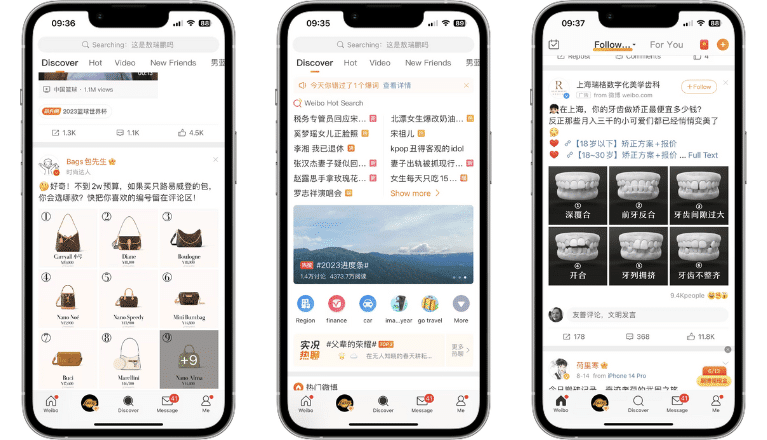
The platform’s unique micro-blogging content can help foreign B2B companies keep up with the latest industry trends and discover possible clients using specific keywords and hashtags within the platform.
● Zhihu
When you use this platform, we don’t doubt that you’ll notice its similarity with Quora. International businesses can use it to answer industry-specific questions, establishing the brand as a thought leader in the market.
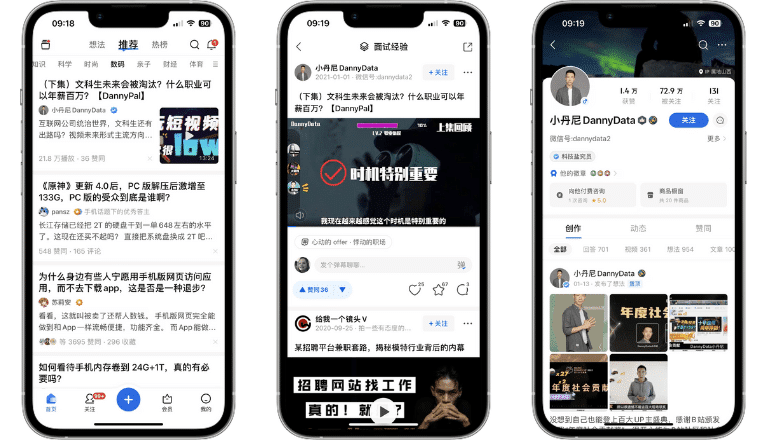
On top of that, this Q&A app is filled with younger and highly educated users. Thanks to this, non-local companies can focus on crafting strategies that appeal to this specific user demographic.
You can also search for official accounts on Zhihu. This feature makes it easier for foreign B2B marketers and advertisers to identify other businesses they can work with in China.
● Maimai
Since Business-to-Business marketing requires a more intricate approach, it also pays to check out websites where the majority of the users are companies themselves. The best example of this is the business social app called Maimai.
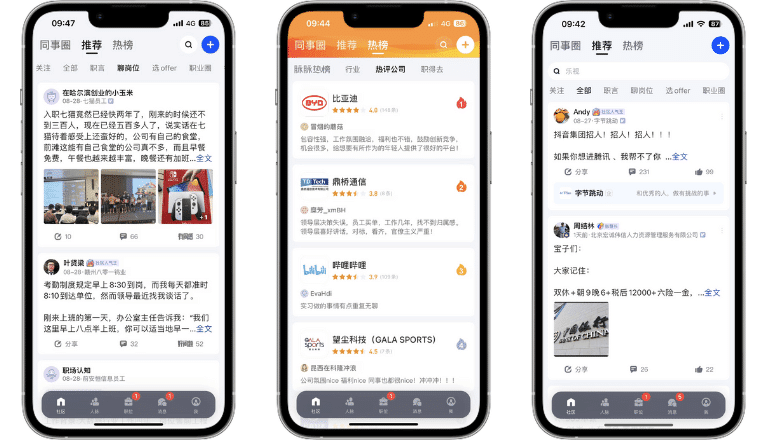
This platform is the Chinese equivalent of LinkedIn, so foreign companies cannot skip this app when launching a B2B marketing campaign. It also has more than 100 million verified users and over 80% penetration rate.
5. Finding a Suitable KOL to Collaborate With
When conducting B2B marketing in China, it’s important to note that local KOLs and influencers can sway the purchasing behavior of your potential customers. These people also understand the Chinese culture better, making them more appealing to potential partners in China.
Influencer marketing is a great tool to boost brand presence in the Chinese B2B market, especially when creating product explainers or reviews. Collaborating with KOLs will allow your company to connect with their dedicated fanbase.
It’ll be hard for a new business to connect with reliable KOLs & KOCs in China, so working with a marketing agency that can give you access to a roster of trustworthy influencers is always a good investment.
SDG has worked on numerous KOL marketing campaigns over the years. In fact, our team has extensive industry experience handling community management, campaign launches, and KOL communication to achieve any brand’s marketing goals.

6. Exploring B2B E-Commerce & Cross-Border Platforms
E-commerce is one of the vital parts of B2B marketing in China, mainly because these platforms are used solely for offering and trading products.
When conducting B2B e-commerce trades, you must know that these transactions are divided into domestic marketplaces and cross-border platforms.
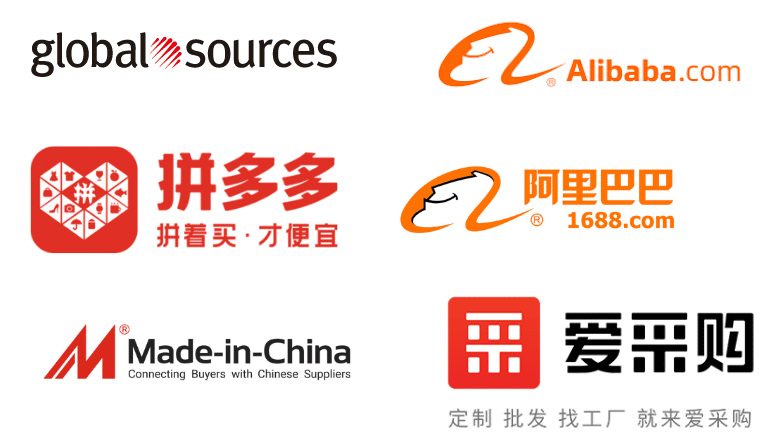
Here’s a short guide you can refer to:
● Alibaba
Any foreign business that wants to conduct B2B transactions in China is undoubtedly familiar with Alibaba. Besides its global popularity and authenticity, non-local brands find it easy to transact on this platform because it has a user-friendly interface and the content is in English.
The only problem with Alibaba is it has higher price rates than other B2B e-commerce platforms in China.
● Baidu B2B
This platform is a domestic e-commerce channel, so expect the interface and content to be entirely Chinese. Nevertheless, businesses can attract potential customers here, primarily because it has high web traffic from the Baidu search engine.
● Pinduoduo
Another reliable domestic B2B marketplace in China is Pinduoduo. This platform gained its fame because of its convenient group buying features. Although the app is in full Chinese, non-local businesses can access its website with an English language option.
● 1688 (Alibaba)
If you’re looking for cheaper fulfillment services in China, your company can easily find them in 1688. It offers a lower price range, attracting many customers to do business on the platform.
However, being well-versed in Chinese is essential because it’s a domestic e-commerce platform.
● Global Sources
Unlike Alibaba, Global Sources doesn’t have a long list of company suppliers in its roster. However, you can count on it to have when it comes to authenticity and platform reputation.
● Made in China
Made in China is an e-commerce B2B trading platform with a specific target market: foreign SMEs. Non-local companies feel at ease doing business on this platform mainly because of its secure interface and services.
7. Conducting Market & Competitor Research
No matter how big, any foreign company must do their due diligence and research about the Chinese market before jumping headfirst into its business scene. International marketers must familiarize themselves with the local culture and norms to avoid mishaps during campaign launches.
If your company isn’t familiar with how a specific industry works within the local market, seeking the help of local marketing teams to achieve your goals is one of the best business decisions you can make.
These agencies can conduct market studies for your company, helping you decode the consumer behavior of your target market and understand the evolving market trends in China. Other than that, these experts can provide key information to keep your brand ahead of competitors in the local business scene.

B2B Marketing China: Do’s and Don’ts
● Don’t Rely on Email Marketing
Although email marketing is a powerful tool in the B2B market, it doesn’t hold the same influence in China. According to statistics, only 5% of local internet users open or use their emails. If you ask us, reaching out on popular apps like WeChat is still more convenient.
● Don’t Execute a One-Size-Fits-All Strategy
China has a massive geographical structure, causing its business landscape to be highly segmented.
Always remember that China has over 700 cities and multiple provinces, so the consumer behavior and culture your company must consider may vary according to your target market. Your strategy should be flexible enough to adapt to any market changes, especially with the ever-evolving digital landscape.
● Align Your Strategies with the Local Culture
The B2B market in China is a competitive landscape. However, no matter how hard it is to craft effective marketing strategies, aligning your message and tone with the local culture and nuances is of utmost importance.
Keep in mind that your potential local B2B partners won’t have the same needs as your usual Western clients. If your brand intends to become a long-term solution provider, you must ensure they won’t view your company as a typical supplier.
Your marketing strategies must go beyond the intention of generating sales and showcase a deep understanding of the local culture. This way, you can forge a deeper connection with Chinese customers.
Although foreign brands must show enthusiasm for integrating local nuances in the company’s content, remember that your business must maintain its identity to stand out in the market.
What are the top B2B industries in China?
China’s massive economic power and rapidly evolving business landscape helped the country’s B2B market to expand in different niches. From finance and fintech to e-commerce and retail, the business opportunities foreign B2B brands can utilize are endless.
Here are the leading industries in the market:
- Agriculture & Food
- Construction
- Industrial Components
- Machinery
- Steel & Metal Products
- Beauty Brands
- Wholesale
- Healthcare & Pharmaceuticals
Your Trusted B2B Marketing Partner In China!
China has no shortage of B2B opportunities for foreign companies, especially now that transactions can be made digitally. However, it doesn’t mean you can reap its benefits with any marketing approach.
At Sekkei Digital Group, we deeply understand the intricacies of the Chinese market. Using our extensive knowledge of B2B marketing strategies, we can assist you in exploring your brand’s full potential!
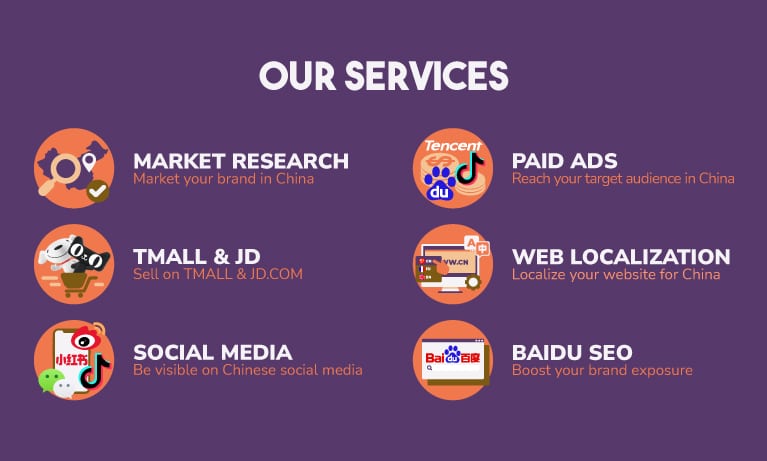
Contact us today if you want to fast-track your entry into China’s B2B industry. Whether it’s crafting compelling advertising campaigns, utilizing social media platforms, or making waves with PR, we have the digital solutions you need!

References:
Chinese B2B Marketing – The Ultimate Guide
B2B marketing in China: The Chinese business culture embrace online strategies for procurement
How Western B2B brands can build longevity in the Chinese market

